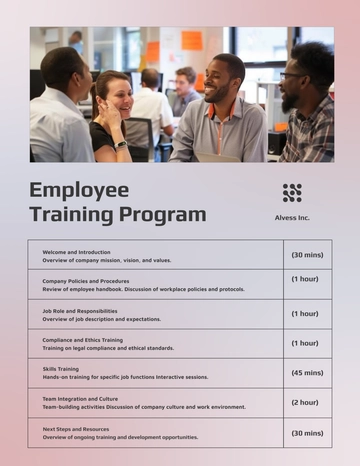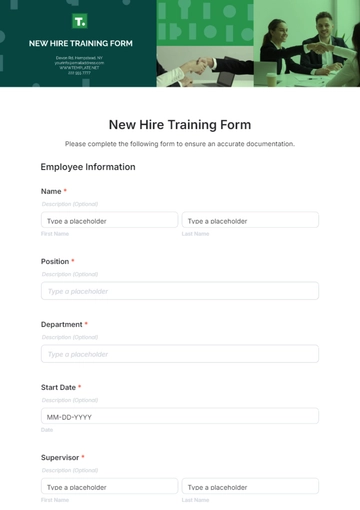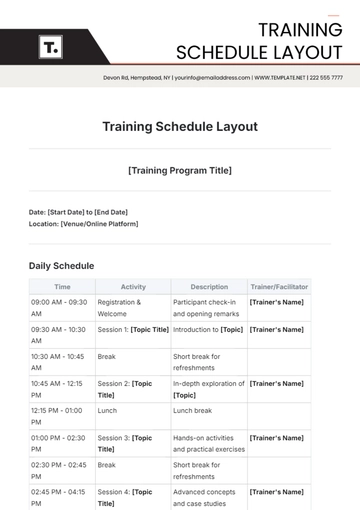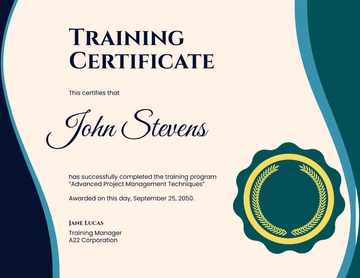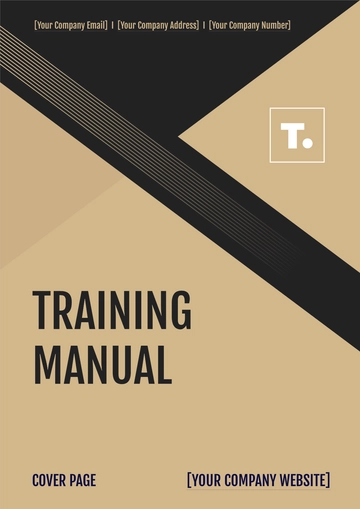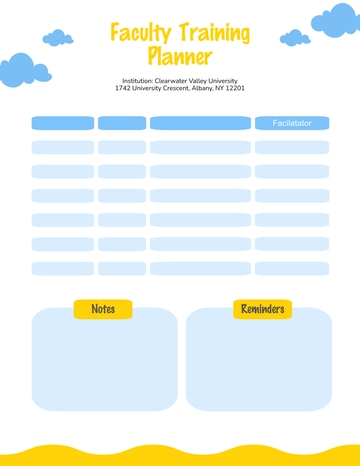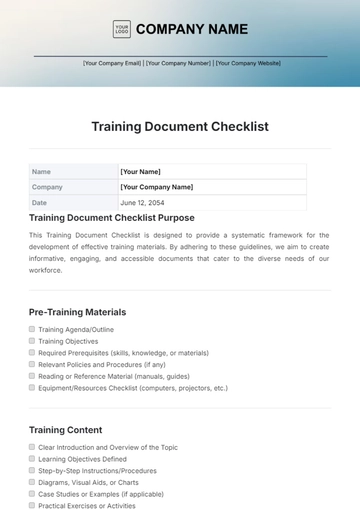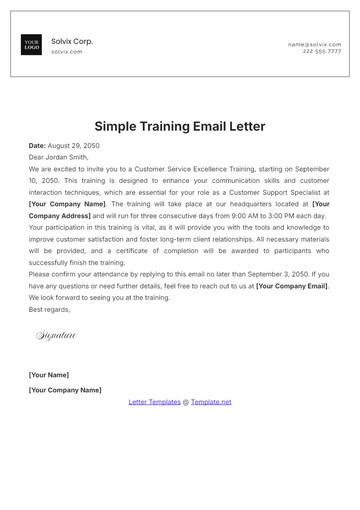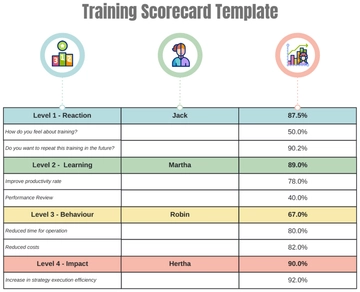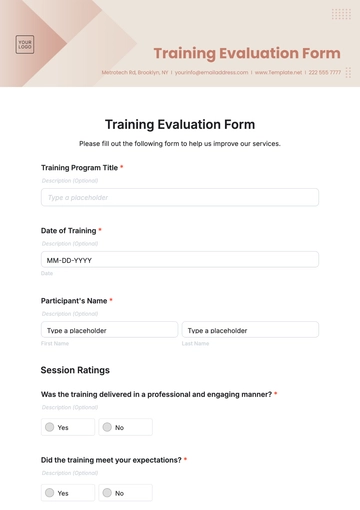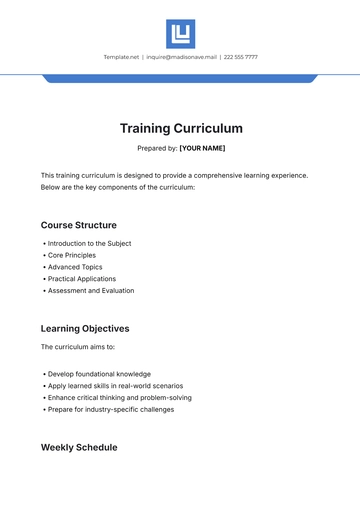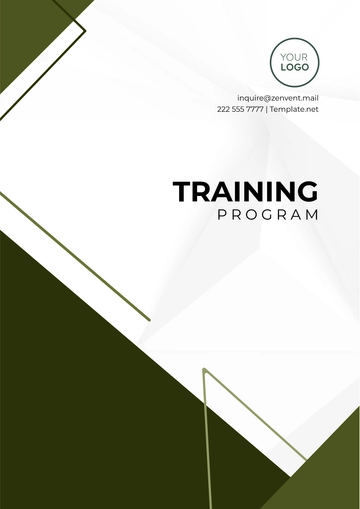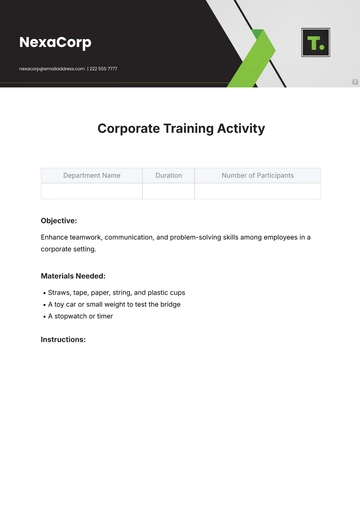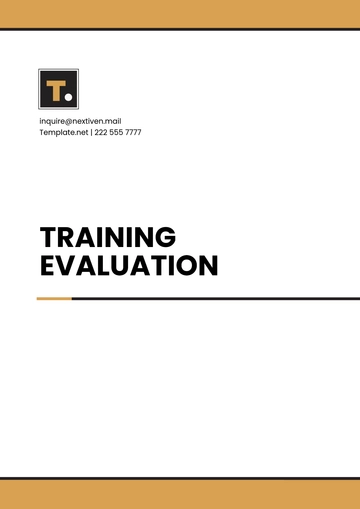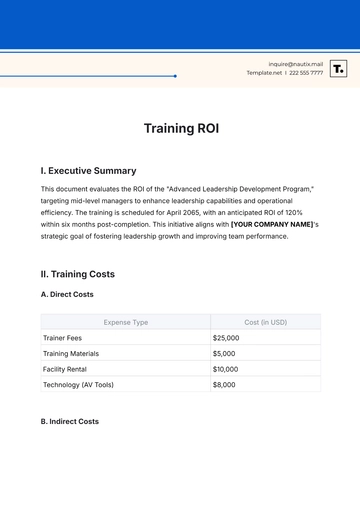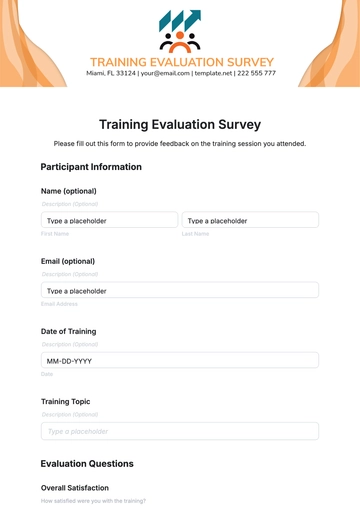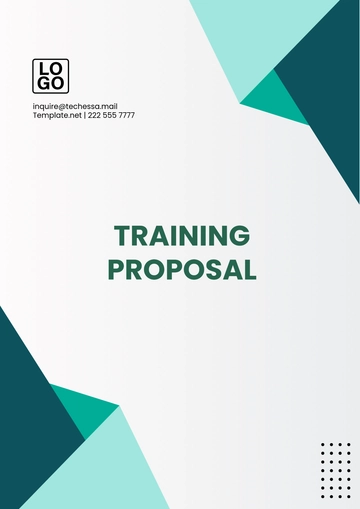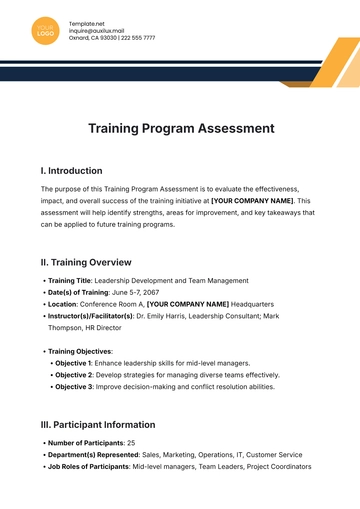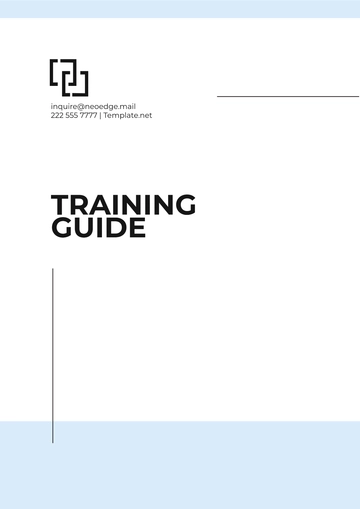Free Sales Curriculum for Negotiation Training

I. Introduction
The Sales Negotiation Training Curriculum aims to equip sales professionals with the necessary skills to successfully navigate negotiations with clients. This comprehensive program consists of a series of modules that cover the foundational principles of negotiation, effective communication techniques, and tactical approaches tailored for specific industries.
A. Importance of Sales Negotiation in Business:
Sales negotiation is not merely a transactional encounter but a critical business skill that has a profound impact on revenue, profitability, and long-term client relationships. Effective negotiation is the cornerstone of securing favorable contracts, establishing value propositions, and fostering customer loyalty. By focusing on these facets, the training program aims to build a framework for sustainable success in any sales environment.
B. Training Methodology:
Our training methodology blends theoretical concepts with practical applications to provide a well-rounded experience. Participants will engage in interactive learning sessions, case studies, and role-playing exercises to simulate real-world negotiation scenarios. This combination facilitates not only the retention of knowledge but also the application of negotiation tactics in various contexts, thereby enhancing the participants’ skill sets.
C. Target Audience:
This curriculum is tailored for a diverse range of sales professionals, including but not limited to Account Executives, Business Development Managers, and Sales Representatives. Whether you are new to the field of sales or looking to refine your existing negotiation skills, this program offers modules that cater to various levels of experience and expertise.
By attending this program, you will gain the necessary skills and knowledge to approach sales negotiations with greater confidence, strategic insight, and tactical expertise. With the application of the principles taught in this curriculum, sales professionals are better positioned to meet and exceed their sales targets, ensuring a competitive advantage for their organizations.
II. Curriculum Structure
The Sales Negotiation Training Curriculum is systematically organized into a series of nine modules, each designed to tackle specific areas critical to the mastery of sales negotiation. The program takes a progressive approach, starting with foundational principles and gradually advancing to specialized techniques and complex negotiation scenarios.
A. Module Progression:
The modules are arranged in a logical sequence that allows for the progressive development of skills. Participants will start by understanding the basics of sales negotiation in Module 1 and will advance through increasingly complex topics, culminating in advanced negotiation tactics and real-world practice sessions in the later modules.
Module Number | Module Title | Duration | Pre-Requisites |
|---|---|---|---|
1 | Introduction to Sales Negotiation | 2 Hours | None |
2 | Building Rapport | 1.5 Hours | Module 1 |
3 | Needs Assessment | 2 Hours | Module 1-2 |
4 | Crafting Proposals | 1.5 Hours | Module 3 |
5 | Overcoming Objections | 2 Hours | Module 3-4 |
6 | Closing Techniques | 1.5 Hours | Module 4-5 |
7 | Specialized Industry Tactics | 3 Hours | Module 1-6 |
8 | Advanced Negotiation Skills | 2 Hours | Module 1-7 |
9 | Case Studies and Role-Playing Exercises | 4 Hours | Module 1-8 |
B. Hands-on Learning Experiences:
To enrich the learning experience, Modules 3, 5, and 9 contain role-playing exercises and case studies that simulate real-world scenarios. These hands-on sessions are instrumental in reinforcing the theoretical knowledge acquired and in providing practical insights into the nuances of sales negotiation.
C. Customization Options:
Understanding that different organizations may have unique needs, [Your Company Name] offers the flexibility to customize the curriculum. Clients can select modules that are most relevant to their business requirements, or request the development of specialized content to better suit their industry or market dynamics.
By following this structured yet flexible approach, the Sales Negotiation Training Curriculum aims to equip sales professionals with a robust skill set that is adaptable to various sales environments and negotiation scenarios.
III. Detailed Module Descriptions
The following section delves deeper into the content and structure of each module in the Sales Negotiation Training Curriculum. Each module is carefully designed to impart targeted knowledge and skills, supported by real-world examples, interactive activities, and expert-led discussions.
Module 1: Introduction to Sales Negotiation
This foundational module sets the stage for the entire training program by laying out the key principles of negotiation within the context of sales.
Key Topics | Learning Activities |
|---|---|
|
|
Module 2: Building Rapport
The ability to quickly build rapport is essential for successful negotiation. This module provides insights into the psychological aspects of relationship-building.
Key Topics | Learning Activities |
|---|---|
|
|
Module 3: Needs Assessment
Identifying and understanding client needs are critical steps in the negotiation process. This module offers practical tools for effective needs assessment.
Key Topics | Learning Activities |
|---|---|
|
|
Module 4: Crafting Proposals
Creating compelling proposals can be a game-changer in negotiations. This module teaches the components of effective proposals and how to present them persuasively.
Key Topics | Learning Activities |
|
|
Module 5: Overcoming Objections
In the sales negotiation process, objections are not roadblocks but opportunities for clarification and further engagement. This module equips participants with the skills to address and overcome objections effectively.
Key Topics | Learning Activities |
|
|
Module 6: Closing Techniques
The closing stage of the negotiation is critical for sealing the deal and establishing long-term business relationships. This module focuses on different closing techniques and when to apply them.
Key Topics | Learning Activities |
|
|
Module 7: Specialized Industry Tactics
Sales negotiation strategies often differ based on the industry or sector. This module introduces industry-specific negotiation tactics for sectors such as technology, healthcare, and manufacturing.
Key Topics | Learning Activities |
|
|
Module 8: Advanced Negotiation Skills
This module goes beyond the basics to delve into the complexities of multi-party negotiations, international negotiations, and high-stakes deals.
Key Topics | Learning Activities |
|
|
Module 9: Case Studies and Role-Playing Exercises
The concluding module provides a capstone experience that allows participants to apply all the knowledge and skills they've gained throughout the course.
Key Topics | Learning Activities |
|
|
Each module features additional reading material, real-world case studies, and optional homework assignments to reinforce the concepts taught during the sessions. With this multifaceted approach, [Your Company Name] aims to provide a comprehensive and immersive learning experience that empowers sales professionals to excel in the complex landscape of sales negotiations.
IV. Training Assessment and Outcomes
The effectiveness of the Sales Negotiation Training Curriculum is assessed through a comprehensive evaluation framework, ensuring that the training program not only delivers knowledge but also achieves measurable outcomes. This section outlines the methods of assessment and expected results upon successful completion of the program.
A. Assessment Methodologies:
To accurately gauge the efficacy and impact of the training program, a variety of assessment tools have been integrated into the curriculum at strategic intervals. Each serves a unique evaluative purpose:
Pre-Assessment Surveys: Prior to the commencement of the course, participants are required to complete pre-assessment surveys. These surveys are designed to capture a snapshot of participants' existing negotiation abilities and conceptual understanding, thereby allowing for a tailored learning experience.
Module Quizzes: Upon the completion of each module, participants will take a quiz consisting of multiple-choice and short-answer questions. These quizzes are engineered to assess retention and comprehension of the module’s key concepts and to identify areas requiring further reinforcement.
Role-Playing Exercises: Participants will engage in role-playing scenarios that simulate real-world negotiation situations. Each of these exercises is assessed by a team of expert trainers who provide individualized feedback, enabling participants to refine their skills in real-time.
Final Assessment: At the conclusion of the training program, participants are subject to a comprehensive, scenario-based examination that covers all modules. This final assessment serves as a robust measure of participants' proficiency in sales negotiation.
Post-Training Survey: After completing the program, participants will be invited to fill out a post-training survey. This survey captures feedback about the training's effectiveness and offers insights that are invaluable for the ongoing refinement of the curriculum.
Assessment Type | Weightage | Pre-Training |
|---|---|---|
Pre-Assessment Surveys | 5% | Pre-Training |
Module Quizzes | 40% | End of Each Module |
Role-Playing Exercises | 25% | During Training |
Final Assessment | 25% | Post-Training |
Post-Training Survey | 5% | Post-Training |
B. Expected Outcomes:
Upon successful completion of the Sales Negotiation Training Program, participants are expected to realize several multifaceted outcomes that extend beyond mere theoretical understanding:
Skill Enhancement: Participants will master a comprehensive set of sales negotiation tactics and strategies. These skills are designed to be directly applicable to a variety of real-world negotiation scenarios, thus enabling immediate performance improvement.
Increased Confidence: Through a combination of theory, practical exercises, and expert feedback, participants will gain increased self-assurance and confidence in initiating, conducting, and closing complex sales negotiations.
Performance Metrics Improvement: The training is intended to positively impact key performance indicators such as the deal closure rate, average transaction size, and customer retention rates. These metric improvements signify not just skill enhancement but also business impact.
Career Advancement: Mastery of advanced negotiation skills equips participants with a highly valuable skill set, positioning them for upward mobility within their organizations, increased earning potential, and greater professional responsibilities.
V. Conclusion
In conclusion, the Sales Negotiation Training Curriculum offered by [Your Company Name] is an exhaustively researched and meticulously designed program that aims to equip sales professionals with the essential skills, tactics, and strategies for excelling in complex negotiations. With an emphasis on practical application and measurable outcomes such as skill enhancement, increased confidence, and performance metric improvement, this curriculum stands as a comprehensive solution for career advancement and business impact.
For further inquiries or to register for this training program, please contact our Sales Training Department at [Your Company Email] or call us at [Your Company Number]. Thank you for considering [Your Company Name] for your Sales Negotiation Training needs. We look forward to partnering with you for your success.
- 100% Customizable, free editor
- Access 1 Million+ Templates, photo’s & graphics
- Download or share as a template
- Click and replace photos, graphics, text, backgrounds
- Resize, crop, AI write & more
- Access advanced editor
Boost your sales team's negotiation skills with the use of our Sales Curriculum for Negotiation Training Template! This structured curriculum covers essential negotiation tactics, ethical practices, and situational strategies. Elevate your training program and your team’s ability to close deals. Download our quick to edit template today at Template.net!
You may also like
- Training Plan
- Training Certificate
- Training Proposal
- Training Letter
- Training Proposal Letter
- Training Checklist
- Training Report
- Training Agreement
- Training Schedule
- Training Banner
- Training Need Analysis
- Training Flyer
- Training Form
- Training Brochure
- Training Quotation
- Training Sheet
- Training Survey
- Training Invitation
- Training Catalog
- Training Gantt Chart
